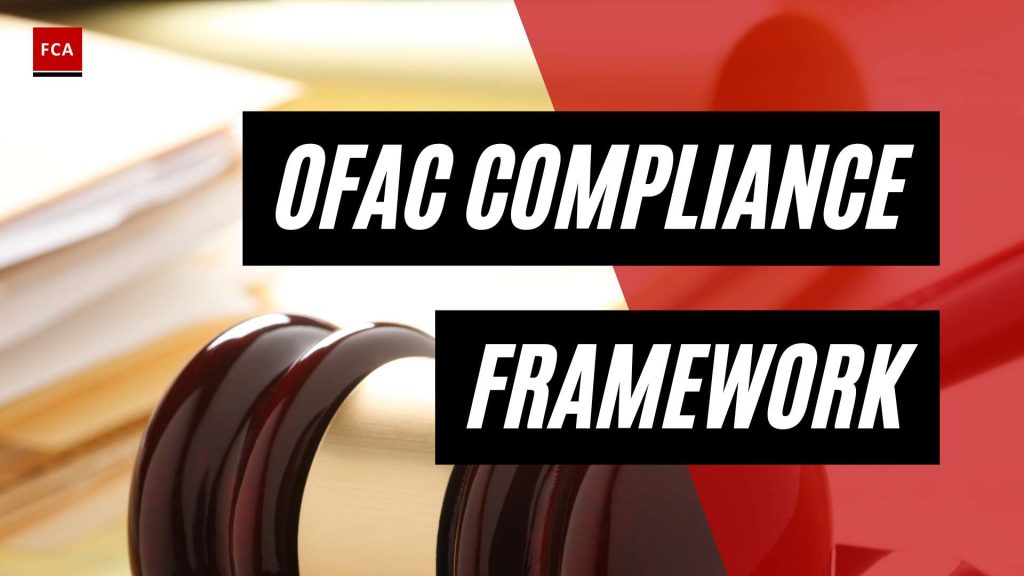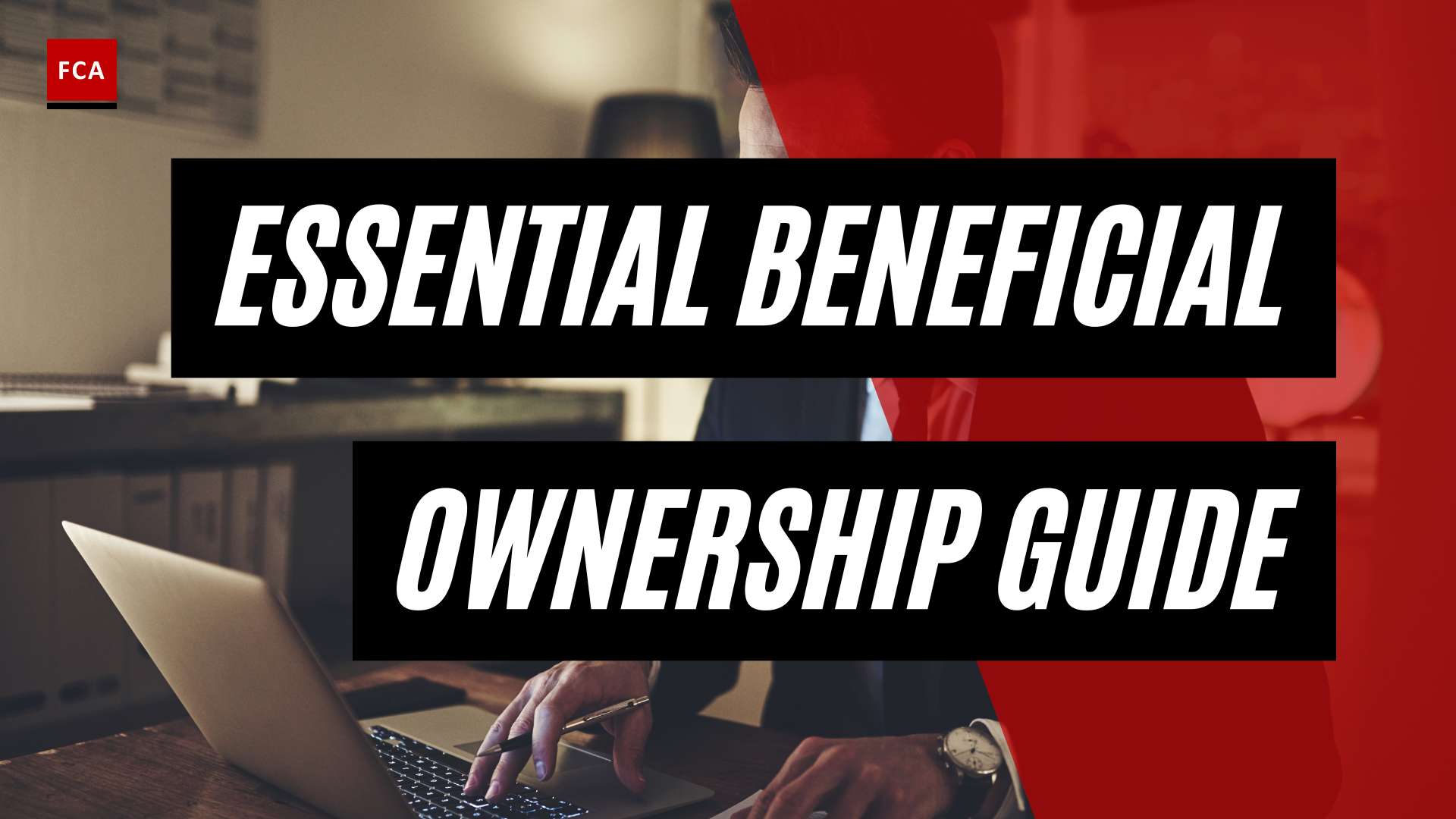Understanding OFAC Compliance
When it comes to conducting business in today’s global landscape, compliance with regulations is of utmost importance. Specifically, organizations must understand and adhere to the regulations set forth by the U.S. Department of the Treasury’s Office of Foreign Assets Control (OFAC). This section will provide an overview of OFAC and highlight the importance of OFAC compliance.
What is OFAC?
OFAC, short for the Office of Foreign Assets Control, is responsible for administering and enforcing economic and trade sanctions based on U.S. foreign policy and national security goals. Their mission is to combat threats to the national security, foreign policy, or economy of the United States through the implementation and enforcement of economic and trade sanctions.
In practical terms, OFAC maintains and updates the Specially Designated Nationals and Blocked Persons List (SDN List), which includes individuals, organizations, and entities with whom U.S. persons are prohibited from engaging in transactions. These sanctions are imposed on various targets, including foreign countries, terrorists, international narcotics traffickers, and other entities that pose a threat to the United States (OFAC).
Importance of OFAC Compliance
Compliance with OFAC regulations is crucial for organizations operating within the purview of U.S. jurisdiction. By adhering to OFAC guidelines, organizations can avoid sanctions violations, reduce the risk of exposure to fines and penalties, and demonstrate a commitment to legal and regulatory obligations.
A solid OFAC compliance framework serves as a proactive measure that organizations can implement to mitigate the risk of engaging in prohibited transactions. It involves a series of measures designed to ensure compliance with OFAC regulations, safeguarding the organization’s reputation and financial interests.
Some key benefits of maintaining a robust OFAC compliance program include:
-
Avoiding Penalties: Failure to comply with OFAC regulations can result in significant civil and criminal penalties. Violations can lead to fines of up to millions of dollars and even imprisonment for responsible individuals. Implementing and adhering to an effective OFAC compliance framework can help organizations steer clear of such penalties.
-
Enhancing Risk Management: By conducting regular risk assessments and implementing internal controls, organizations can identify and mitigate potential risks associated with engaging in prohibited transactions. This proactive approach strengthens risk management efforts and helps safeguard the organization against financial and reputational damage.
-
Maintaining Reputational Integrity: Complying with OFAC regulations is not only a legal obligation but also a means to protect an organization’s reputation. Non-compliance can result in reputational damage, leading to loss of trust from customers, business partners, and the public. Demonstrating a commitment to OFAC compliance showcases an organization’s ethical and responsible business practices.
-
Enabling International Business: Compliance with OFAC regulations allows organizations to engage in international business transactions with confidence. By adhering to the requirements, organizations can navigate the complexities of global trade while ensuring compliance with U.S. sanctions regulations.
To establish a comprehensive OFAC compliance program, organizations should consider tailoring compliance programs to their specific needs, conducting regular risk assessments, strengthening internal controls, and providing continuous training and education to employees. By doing so, organizations can build a solid foundation for OFAC compliance and contribute to a culture of ethical and responsible business practices.
Components of the OFAC Compliance Framework
To establish a solid framework for OFAC compliance, organizations should focus on five essential components outlined by the OFAC Compliance Framework: management commitment, risk assessment, internal controls, testing and auditing, and training.
Management Commitment
Management commitment is a crucial element of an effective OFAC compliance program. It demonstrates the organization’s dedication to adhering to OFAC regulations and sets the tone for compliance throughout the company. This involves creating a culture of compliance, appointing a designated compliance officer, and providing the necessary resources and support for compliance efforts.
Risk Assessment
Conducting a thorough risk assessment is essential to identify potential areas of exposure to OFAC sanctions. This assessment involves analyzing the organization’s operations, customers, suppliers, and transactions to determine the level of risk associated with each. By understanding the specific risks faced by the organization, appropriate measures can be implemented to mitigate those risks effectively.
Internal Controls
Establishing robust internal controls is essential for maintaining OFAC compliance. Internal controls encompass policies, procedures, and systems designed to prevent and detect potential violations of OFAC regulations. These controls may include implementing screening processes to check transactions against the OFAC sanctions list, conducting due diligence on customers and business partners, and implementing transaction monitoring systems to identify any suspicious activities.
Testing and Auditing
Regular testing and auditing of the OFAC compliance program are crucial to ensure its effectiveness. This involves conducting periodic reviews and assessments to evaluate the organization’s compliance with OFAC regulations. The testing and auditing process should identify any weaknesses or gaps in the compliance program and provide recommendations for improvement.
Training
Continuous training and education are vital components of an effective OFAC compliance program. Organizations should provide regular training to employees, ensuring they understand the requirements of OFAC regulations, the organization’s compliance policies and procedures, and the consequences of non-compliance. Training programs should be tailored to specific roles and responsibilities within the organization, keeping employees informed about the latest developments in OFAC regulations.
By implementing these components of the OFAC compliance framework, organizations can establish a robust compliance program that aligns with regulatory requirements and best practices. Prioritizing management commitment, conducting thorough risk assessments, strengthening internal controls, conducting regular audits, and providing continuous training will help organizations mitigate the risk of violating OFAC regulations and ensure ongoing compliance.
Implementing an Effective OFAC Compliance Program
To ensure compliance with OFAC regulations, organizations must implement an effective OFAC compliance program. This program should be tailored to the organization’s specific risk profile, industry, and requirements. The following components are key to a robust OFAC compliance program:
Tailoring Compliance Programs
Organizations should customize their compliance programs to align with their unique risk profile and industry. This involves conducting a thorough risk assessment to identify potential areas of exposure. By understanding the specific risks associated with their business activities, organizations can allocate resources effectively and prioritize mitigation efforts (Federal Lawyer).
Conducting Risk Assessments
Risk assessments play a crucial role in OFAC compliance. Organizations should regularly assess their exposure to potential sanctions violations and evaluate their existing controls. This process helps identify vulnerabilities and enables organizations to implement appropriate measures to mitigate risks. By conducting frequent risk assessments, organizations can adapt their compliance strategies to address emerging threats (Federal Lawyer).
Strengthening Internal Controls
Robust internal controls are essential for effective OFAC compliance. Organizations should implement measures to prevent, detect, and report potential violations of sanctions laws and regulations. These controls may include procedures for verifying customer information, conducting due diligence on business partners, and implementing effective screening processes (OFAC).
Regular Audits and Assessments
Regular audits and assessments are necessary to evaluate the effectiveness of an organization’s OFAC compliance program. By conducting periodic reviews, organizations can identify any deficiencies or gaps in their processes and controls. This helps ensure that compliance measures remain up to date and effective in the ever-changing landscape of sanctions and regulations (OFAC).
Continuous Training and Education
Continuous training and education are vital components of an effective OFAC compliance program. Organizations should provide ongoing training to employees at all levels to ensure they understand and adhere to OFAC requirements. Training programs should cover topics such as sanctions awareness, proper screening processes, and reporting obligations. By fostering a culture of compliance through education, organizations can minimize the risk of violations and promote a strong compliance posture (OFAC).
By implementing these components within their OFAC compliance program, organizations can establish a solid framework for success. It is crucial to stay updated on OFAC regulations and compliance requirements to ensure ongoing adherence to sanctions laws. This commitment to compliance helps organizations avoid the severe consequences of non-compliance, including civil and criminal penalties, financial impact, and reputational damage (Federal Lawyer).
Consequences of Non-Compliance with OFAC Regulations
Ensuring compliance with the regulations set forth by the Office of Foreign Assets Control (OFAC) is of utmost importance for organizations operating in global markets. The consequences of non-compliance can be severe, encompassing civil and criminal penalties, financial impact, and reputational damage.
Civil and Criminal Penalties
Non-compliance with OFAC regulations can result in significant civil and criminal penalties. The penalties for violations can be substantial, with fines that can amount to millions of dollars. The base civil monetary penalty for an “egregious” violation of OFAC sanctions is typically equal to the greater of $295,141 per violation or twice the amount of the underlying transaction (Husch Blackwell). Organizations lacking effective sanctions compliance programs (SCPs) may face higher penalties, as OFAC considers the existence of an effective SCP as a factor in determining whether a case is deemed “egregious” (Husch Blackwell).
Furthermore, non-compliance can lead to criminal charges for responsible individuals within the organization. Imprisonment may be a consequence for individuals found guilty of willful violations of OFAC regulations.
Financial Impact
The financial impact of non-compliance with OFAC regulations can be substantial. Organizations may face fines and penalties that can significantly impact their financial stability and operations. The potential fines for violations can reach millions of dollars per violation. Additionally, non-compliance can result in the loss of business opportunities, restricted access to financial services, and increased costs associated with remediation efforts.
Reputational Damage
Reputational damage is a significant consequence of non-compliance with OFAC regulations. Violations can tarnish an organization’s reputation and erode the trust of clients, partners, and stakeholders. Negative publicity and media coverage surrounding non-compliance can have lasting effects on an organization’s standing within the industry and the public’s perception of its integrity.
Organizations that prioritize OFAC compliance demonstrate their commitment to ethical business practices and adherence to legal requirements. Conversely, non-compliance can lead to a loss of confidence and credibility, potentially impacting existing relationships and hindering future business opportunities.
To mitigate the consequences of non-compliance, organizations must establish and maintain robust OFAC compliance programs. Regular audits and assessments of the compliance program are crucial to identify and rectify any potential violations before they occur. By adhering to OFAC regulations, organizations can safeguard their reputation, protect against financial penalties, and ensure continued business success.
For more information on OFAC compliance programs and specific regulatory requirements, refer to the OFAC website and their resources on OFAC sanctions programs, the OFAC compliance framework, and regulatory requirements.
Resources and Guidance for OFAC Compliance
Compliance with the Office of Foreign Assets Control (OFAC) sanctions regulations requires organizations to have access to the right resources and guidance. The OFAC Compliance Framework serves as a comprehensive guide for businesses to develop and maintain a strong compliance program that adheres to the requirements set forth by the US government (OFAC). Understanding and implementing this framework is crucial for organizations to ensure they are meeting all necessary obligations for compliance.
OFAC Sanctions Programs
To effectively comply with OFAC regulations, organizations need to be aware of the OFAC sanctions programs that identify individuals, entities, and countries subject to economic sanctions. These programs outline specific sanctions-related restrictions and prohibitions that must be observed. By regularly reviewing and staying updated on the OFAC sanctions programs, organizations can ensure they are not engaging in prohibited activities or conducting business with restricted parties.
OFAC Compliance Framework
The OFAC Compliance Framework provides a significant foundation for entities to develop and maintain a strong compliance program. It outlines key components that should be implemented by businesses to mitigate risk and ensure compliance with OFAC regulations. These components include:
- Management Commitment: Demonstrating a commitment to compliance from senior management and establishing a compliance culture throughout the organization.
- Risk Assessment: Conducting thorough risk assessments to identify potential areas of exposure and assess the level of risk associated with different business activities.
- Internal Controls: Implementing robust internal controls to monitor, detect, and prevent potential violations of OFAC regulations.
- Testing and Auditing: Conducting regular audits and assessments to evaluate the effectiveness of the compliance program and identify areas for improvement.
- Training: Providing continuous training and education to employees to ensure they understand their responsibilities and the latest developments in OFAC compliance.
By following the OFAC Compliance Framework, organizations can effectively manage and reduce the risk of violating OFAC regulations, protecting themselves from potential penalties and reputational damage.
Regulatory Requirements
Understanding the OFAC compliance requirements is crucial for organizations to comply with the regulations. These requirements include implementing and maintaining an effective compliance program, screening processes, and ensuring that international transactions and activities within regulated sectors are conducted in accordance with OFAC regulations.
Entities operating in regulated sectors or dealing with international transactions must carefully follow the OFAC Compliance Framework to stay abreast of changing regulations, update their compliance programs accordingly, and demonstrate a commitment to maintaining a strong culture of compliance within their organization.
By utilizing the resources and guidance provided by OFAC, organizations can develop effective compliance programs, mitigate the risk of non-compliance, and ensure adherence to OFAC regulations.
The Role of Treasury Departments and Bureaus in OFAC Compliance
To ensure effective compliance with the Office of Foreign Assets Control (OFAC) regulations, various departments and bureaus within the U.S. Department of the Treasury play critical roles in enforcing and overseeing OFAC compliance efforts. Let’s explore some of these key entities:
Financial Crimes Enforcement Network (FinCEN)
The Financial Crimes Enforcement Network (FinCEN) is a bureau within the U.S. Department of the Treasury that plays a significant role in combating money laundering, terrorist financing, and other financial crimes. While not directly responsible for OFAC enforcement, FinCEN collaborates with OFAC and other agencies to ensure the integrity of the financial system. FinCEN collects and analyzes financial transaction data to identify and report potential illicit activities, thereby supporting OFAC’s efforts in enforcing economic and trade sanctions.
Office of Terrorism and Financial Intelligence
The Office of Terrorism and Financial Intelligence (TFI) within the U.S. Department of the Treasury is actively involved in enforcing OFAC compliance regulations. TFI’s mission is to safeguard the financial system against illicit activities and national security threats. They work closely with OFAC to develop and implement policies and regulations aimed at disrupting the financial networks of terrorists, proliferators of weapons of mass destruction, narcotics traffickers, and other threats to U.S. national security. TFI’s role in enforcing OFAC compliance ensures that financial institutions and individuals adhere to OFAC’s sanctions programs.
Oversight and Compliance Efforts
In addition to the specific bureaus mentioned above, the U.S. Department of the Treasury has various oversight and compliance entities that contribute to supporting the OFAC compliance framework. These entities include:
- The Treasury Inspector General for Tax Administration (TIGTA): TIGTA conducts independent audits and investigations to ensure the integrity of tax administration and identify potential non-compliance with OFAC regulations.
- The Special Inspector General for Pandemic Response: As part of the oversight efforts related to pandemic response, this office may also contribute to ensuring adherence to the OFAC compliance framework.
Furthermore, the U.S. Department of the Treasury houses other bureaus that are essential for economic and financial oversight. These bureaus, such as the Alcohol and Tobacco Tax and Trade Bureau (TTB), the Bureau of Engraving & Printing (BEP), and the U.S. Mint, collectively contribute to supporting the OFAC compliance framework and maintaining the integrity of the financial system.
By leveraging the expertise and collaboration of these treasury departments and bureaus, the U.S. Department of the Treasury strengthens the implementation and enforcement of OFAC compliance regulations, ensuring that economic and trade sanctions are effectively upheld.
Best Practices for Ensuring OFAC Compliance
To ensure effective compliance with the Office of Foreign Assets Control (OFAC) regulations, organizations should follow best practices that align with the OFAC compliance framework. By implementing these practices, entities can mitigate the risk of non-compliance and maintain a strong culture of compliance.
Staying Updated on OFAC Regulations
Staying abreast of the latest OFAC regulations is crucial for maintaining compliance. OFAC regularly updates its sanctions list, which includes individuals, entities, and countries subject to various restrictions. Organizations must monitor these updates and promptly adjust their compliance programs accordingly.
To facilitate compliance, organizations can utilize technology solutions that provide real-time monitoring and screening against the OFAC sanctions list. By regularly reviewing and updating their screening processes, organizations can ensure that they do not engage in prohibited transactions with sanctioned entities or countries.
Customizing Compliance Programs
The OFAC compliance framework emphasizes the importance of tailoring compliance programs to an organization’s specific risk profile, geographic locations, products, services, and customers. Factors such as size, industry, and customer base impact the level of risk an organization faces (OFAC).
By conducting comprehensive risk assessments, organizations can identify potential areas of exposure and design targeted compliance measures. This process helps organizations prioritize their compliance efforts and allocate resources effectively. Customizing compliance programs ensures that organizations focus on the areas that pose the highest risk and tailor their controls accordingly.
Culture of Compliance
Developing a strong culture of compliance is essential to ensure the effectiveness of an organization’s OFAC compliance program. This involves fostering a compliance-conscious environment where employees understand the importance of adhering to OFAC regulations.
Organizations should provide regular training and education to employees to enhance their awareness of OFAC compliance requirements. Training should cover topics such as recognizing prohibited activities, reporting obligations, and the consequences of non-compliance. Ongoing communication and reinforcement of compliance expectations help embed a culture of compliance throughout the organization.
International Transactions and Regulated Sectors
Entities operating in regulated sectors or engaging in international transactions must pay particular attention to OFAC compliance. These sectors, such as banking, finance, and trade, often involve cross-border transactions and interactions with entities from different jurisdictions.
Organizations operating in regulated sectors should closely follow the OFAC compliance requirements relevant to their industry. They should have robust internal controls, compliance policies, and procedures in place to ensure adherence to OFAC regulations. Regular audits and assessments can help identify any gaps or weaknesses in the compliance program, allowing for timely remediation.
For international transactions, organizations must understand the specific prohibited countries and entities subject to OFAC sanctions. By implementing effective screening processes and utilizing technological solutions, organizations can minimize the risk of inadvertently engaging in prohibited transactions.
By adhering to these best practices, organizations can demonstrate their commitment to OFAC compliance and minimize the risk of civil and criminal penalties, financial impact, and reputational damage resulting from non-compliance. It is crucial for organizations to continuously monitor and update their compliance programs to align with the evolving regulatory landscape and ensure ongoing adherence to OFAC requirements.









